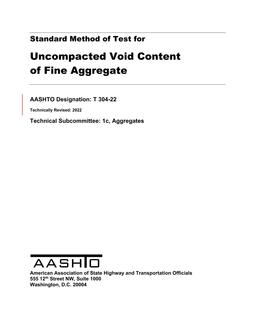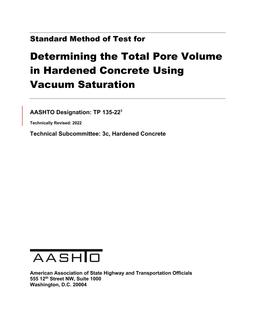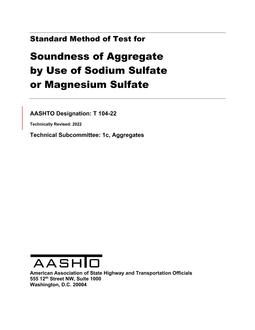
AASHTO T 304-22
- Comments Off on AASHTO T 304-22
- AASHTO
This method describes the determination of the loose uncompacted void content of a sample of fine aggregate. When measured on any aggregate of a known grading, void content provides an indication of that aggregate’s angularity, sphericity, and surface texture compared with other fine aggregates tested in the same grading. When void content is measured on an as-received fine aggregate grading, it can be an indicator of the effect of the fine aggregate on the workability of a mixture in which it may be used.
Three procedures are included for the measurement of void content. Two use graded fine aggregate (standard grading or as-received grading), and the other uses several individual size fractions for void content determinations:
- Standard Graded Sample (Method A)—This method uses a standard fine aggregate grading that is obtained by combining individual sieve fractions from a typical fine aggregate sieve analysis.
- Individual Size Fractions (Method B)—This method uses each of three fine aggregate size fractions: (a) 2.36 mm (No. 8) to 1.18 mm (No. 16); (b) 1.18 mm (No. 16) to 600 μm (No. 30); and (c) 600 μm (No. 30) to 300 μm (No. 50). For this method, each size is tested separately.
- As-Received Grading (Method C)—This method uses that portion of the fine aggregate finer than a 4.75-mm (No. 4) sieve.
This standard also provides guidance for determining the method to be used.
Product Details
- Published:
- 2022
- Number of Pages:
- 10
- File Size:
- 1 file , 460 KB
- Note:
- This product is unavailable in Ukraine, Russia, Belarus



